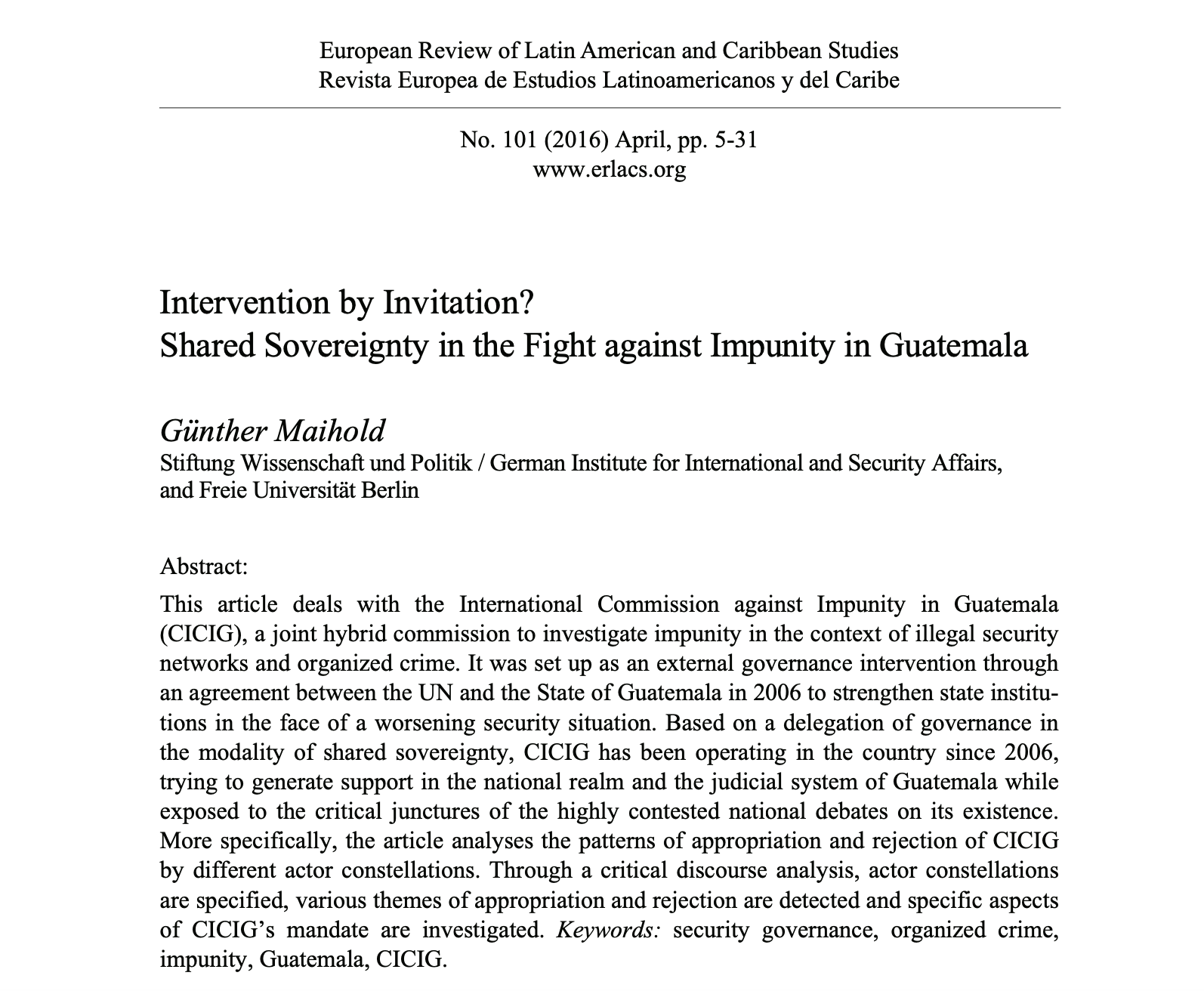︎

Günther Maihold
German Institute for International and Security Affairs (SWP)
Günther Maihold has been the Deputy Director of the German Institute for International and Security Affairs (SWP) since 2004. Coming from a background of Political Science and Sociology, Prof Maihold received his doctorate in 1987 from the University of Regensburg, where he subsequently worked as a Research Fellow. After having spent eight years as project manager in social policy consulting in Mexico, Nicaragua, Panama, Costa Rica, as well as the Department for Latin America and the Caribbean of the Friedrich-Ebert-Foundation, he was appointed Director of the Ibero-American Institute of the Prussian Cultural Heritage Foundation in Berlin. Günther Maihold was a lecturer at the University / GH Duisburg and at the Latin American Institute of the Free University of Berlin. Since November 2006, he has been an Honorary Professor in Political Science at the Free University of Berlin
MORE ABOUT GüNTHER MAIHOLD >Jul 25, 2022
Günther Maihold
Die neue Geopolitik der Lieferketten – “Friend-shoring” als Zielvorgabe für den Umbau von Lieferketten
Eine lange Reihe von Störungen des Welthandels in den letzten Jahren hat eine Reorganisation der internationalen Lieferketten auf die politische Tagesordnung gebracht. Die Unregelmäßigkeiten begannen mit dem Handelskrieg zwischen den USA und China, setzten sich fort mit der Covid-19-Pandemie und ...
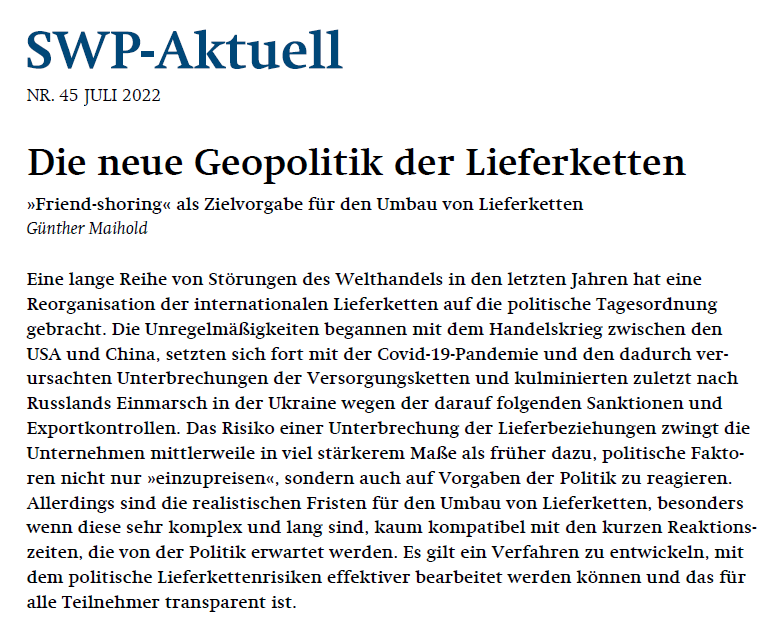
Apr 5, 2022
Sustainable Global Supply Chains Report 2022
Global supply chains affect the economy, the environment and social welfare in many ways. Worldwide, economies are experiencing global supply shortages today, affecting key industries such as automotive and consumer electronics as well as vaccine and medical supplies industries. These preoccupy poli...

Jan 1, 2022
Inga Carry, Günther Maihold
Illegal logging, timber laundering and the global illegal timber trade
Deforestation claims an estimated 10 million hectares each year (FAO 2020). Today’s global demand for timber products1 simply cannot be met by legal, sustainable forestry anymore. The competition for cheap wood products on the global timber market has become a major driver of i...
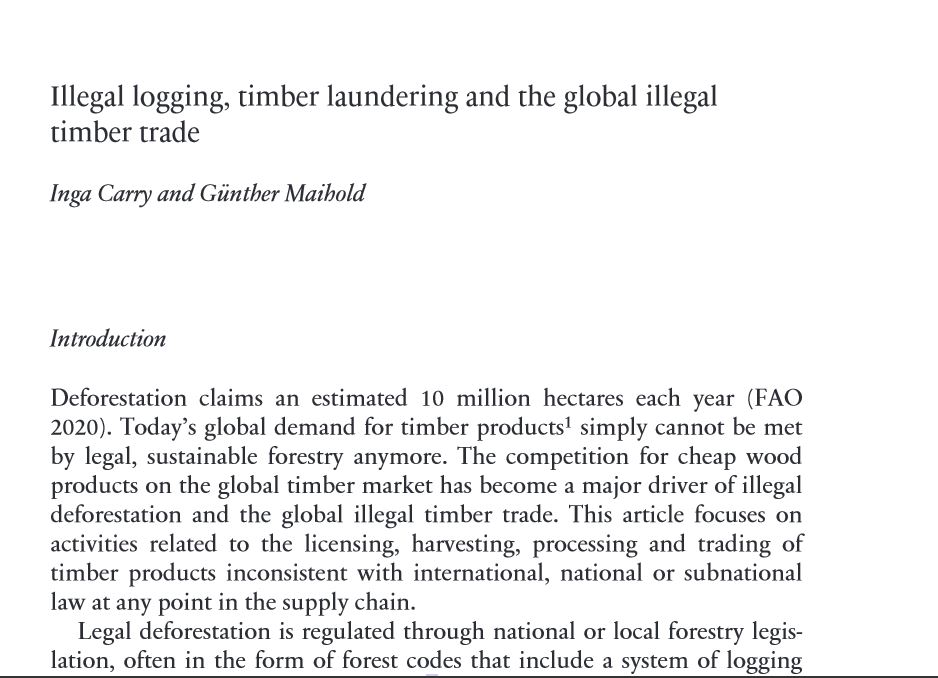
Jan 1, 2022
Günther Maihold, Fabian Mühlhöfer
Supply Chain Instability Threatens Security of Supplies
The Covid pandemic has severely upset global supply chains. This disruption has now spread to many branches of industry, and consumers are starting to feel the impact. No short-term improvement is in sight, which has serious implications for manufacturing processes all over the world. To begin wit...
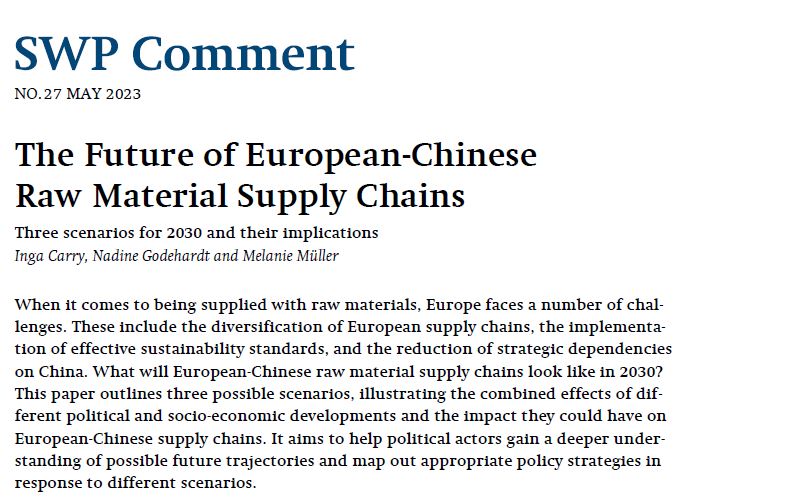
Jan 1, 2021
Günther Maihold.; Viktoria Reisch
Environmental Rights and Conflicts over Raw Materials in Latin America. The Escazú Agreement Is Ready to Come into Force in 2021
On 5 November 2020 Mexico ratified the so-called Escazú Agreement, a treaty between Latin American and Caribbean states on establishing regional transparency and environment standards, as the eleventh country to do so. The prescribed quorum of ratifications has thus been attained, and the agr...
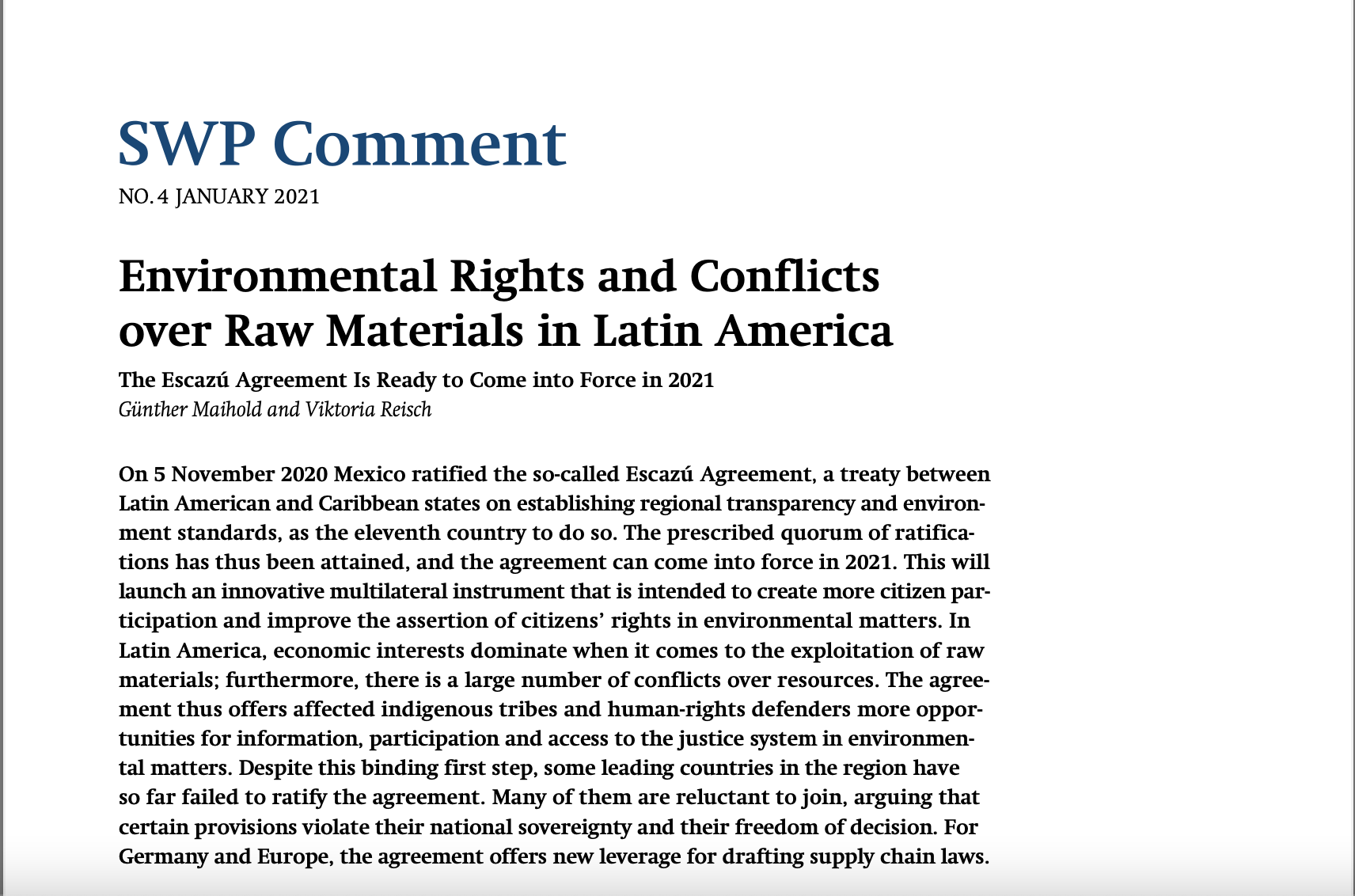
Jan 1, 2021
Günther Maihold.; Melanie Müller.; Christina Saulich.; Svenja Schöneich
Responsibility in Supply Chains – Germany’s Due Diligence Act Is a Good Start
On 3 March, the Federal Cabinet adopted an act on corporate due diligence in supply chains. This represents an important step towards German businesses assuming full and proper responsibility for the supply chains associated with their goods and services. The move puts Germany in a group of European...
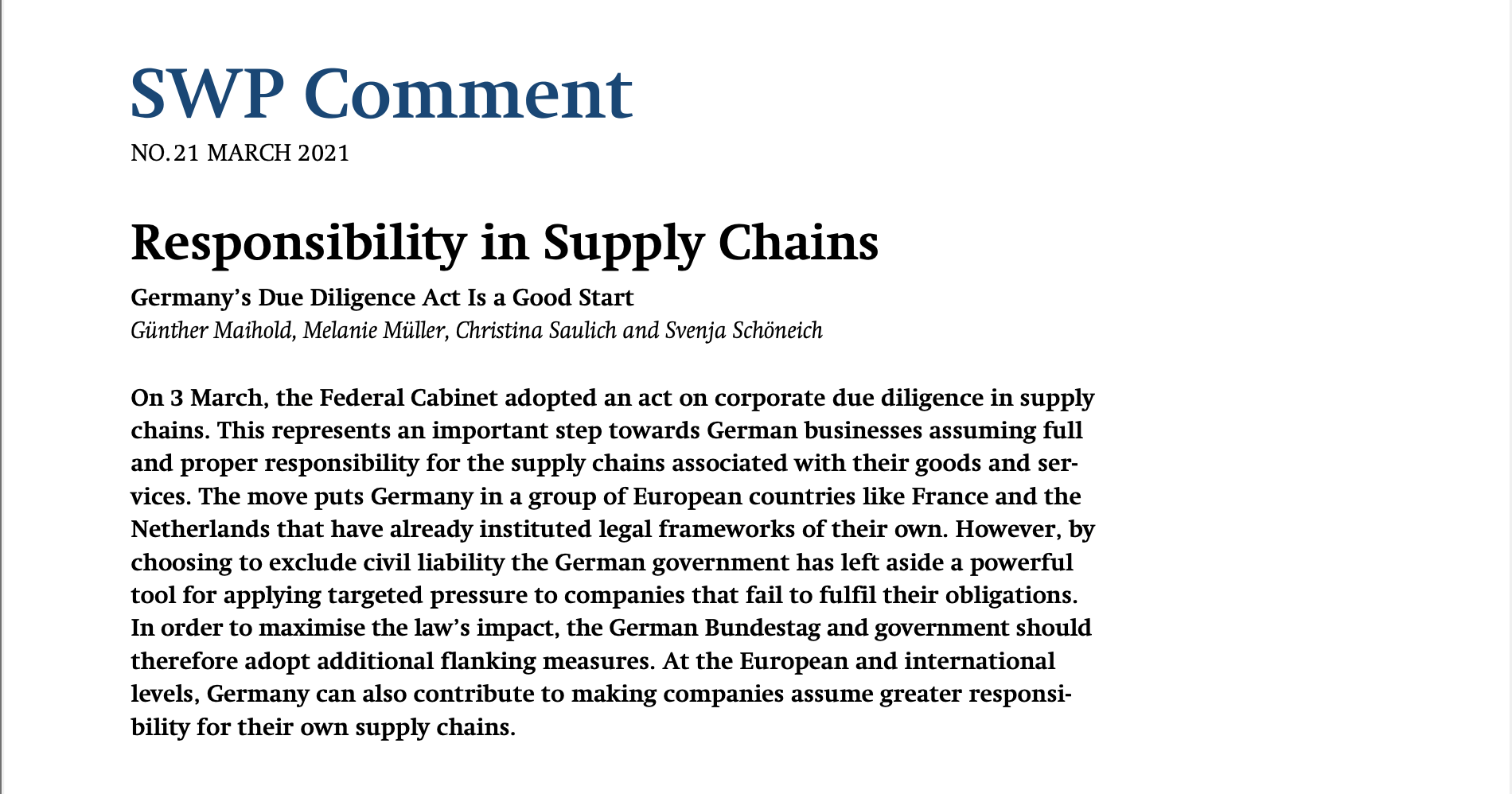
Jan 1, 2018
Günther Maihold
Colombia’s Peace and Venezuela’s Turmoil. An Emerging Regional Crisis Landscape in South America
Despite concerted political efforts to isolate the Colombian peace process from Venezuela’s internal unrest, the signs suggest coalescence and tectonic strife in the region. There are justified concerns that the increasingly interconnected constellation of precarious peace in Colombia and growing ...
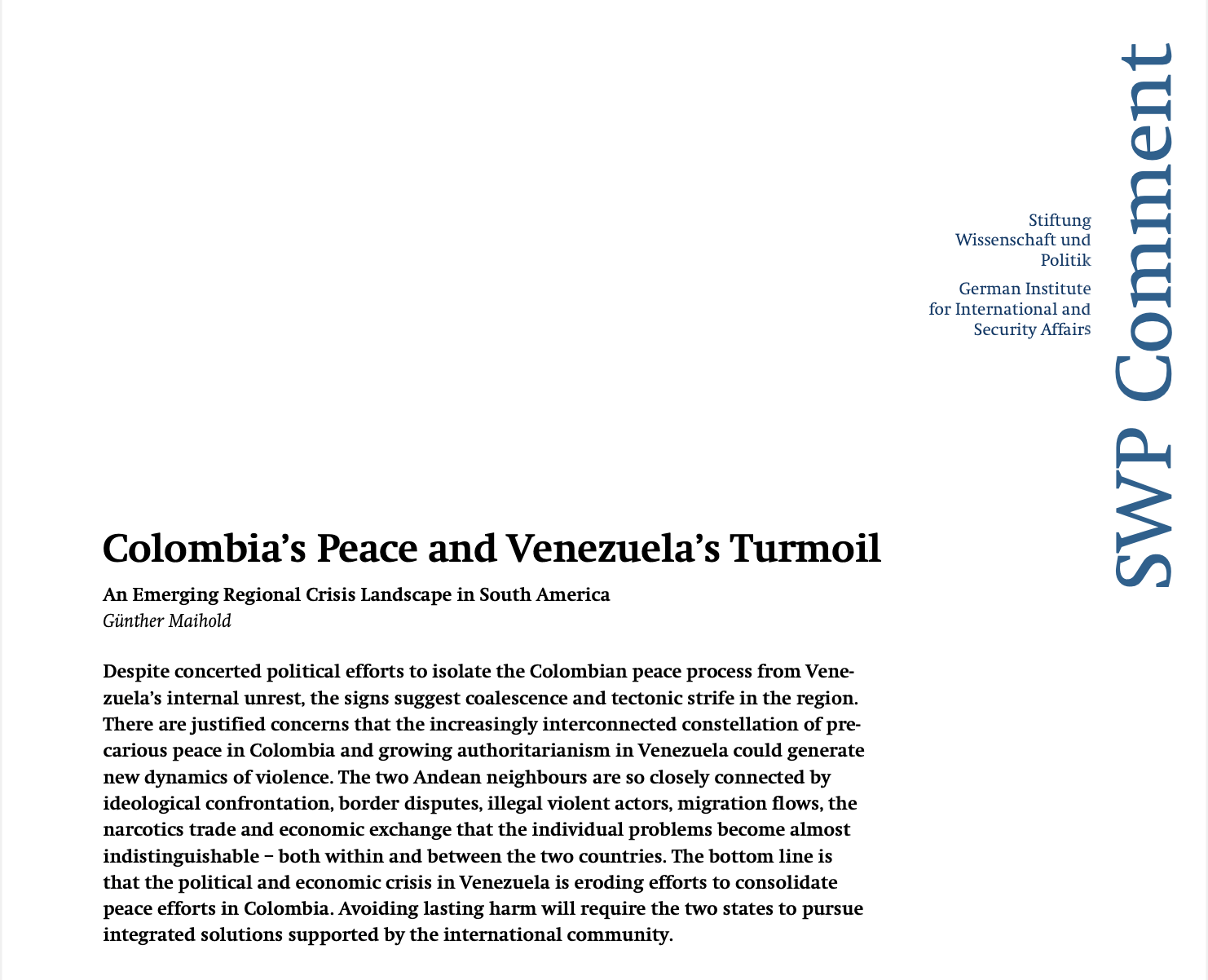
Jan 1, 2016
Günther Maihold
Intervention by Invitation? Shared Sovereignty in the Fight against Impunity in Guatemala
This article deals with the International Commission against Impunity in Guatemala (CICIG), a joint hybrid commission to investigate impunity in the context of illegal security networks and organized crime. It was set up as an external governance intervention through an agreement between the UN and ...
